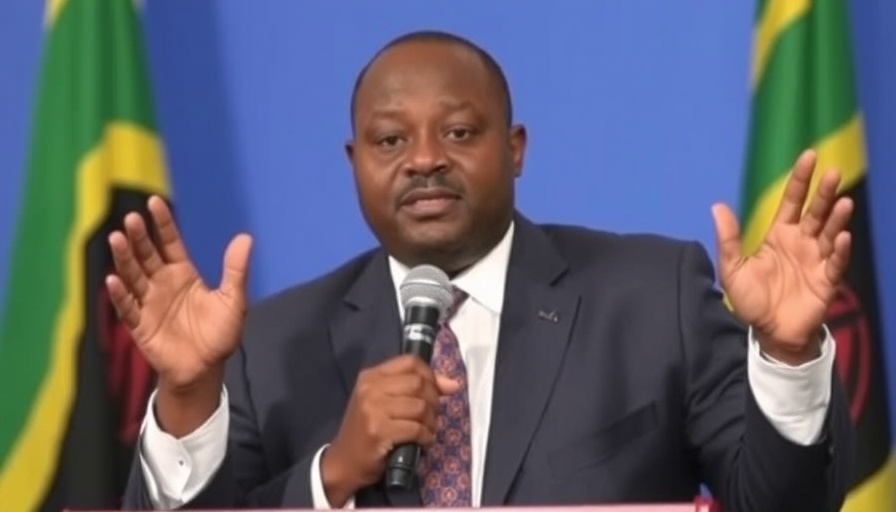
Tundu Lissu's Treason Charge: A Sign of Political Tensions in Tanzania
The recent arrest and treason charge against Tanzanian opposition leader Tundu Lissu highlights escalating political tensions as the country approaches critical elections scheduled for later this year. Lissu, the chairman of the Chadema party and a key figure in Tanzania's opposition, was charged following remarks that prosecutors interpreted as inciting rebellion against the government. This development is pivotal as it brings into focus the human rights situation under President Samia Suluhu Hassan’s administration, particularly in light of her predecessors’ notorious reputation for suppressing dissent.
Political Context: A Legacy of Political Repression
President Hassan, who succeeded John Magufuli, initially garnered international praise for alleviating some of the harsh political repression that characterized Magufuli's regime. However, the recent arrest of Lissu and growing lists of political abductions have stirred international concern. Critics argue that Hassan has reverted to some of the authoritarian tactics of her predecessor, with Lissu’s case representing not just a personal charge but a reflection of the broader struggle for democratic rights in the country.
Implications for Democracy and Future Elections
As the upcoming elections approach, the reaction of the Chadema party becomes increasingly critical. Lissu’s lawyer, Rugemeleza Nshala, describes the charges as politically motivated, intended to stifle opposition voices. The Chadema party has announced plans to boycott the elections unless significant reforms are implemented in the electoral process, which they claim is designed to favor the ruling party. This potential boycott raises serious questions about the legitimacy of the elections and the future of democratic governance in Tanzania.
Global Perspectives: Human Rights and Governance in Africa
The situation in Tanzania resonates with wider trends in African governance, where issues of human rights and political freedoms remain contentious. As countries on the continent navigate their paths to democracy, Lissu's situation exemplifies the struggle many opposition figures face and calls attention to the kind of governance that is critical to facilitating economic growth and foreign investment. For global investors and policymakers, the handling of such political crises directly impacts perceptions of stability in the region, which is vital for economic interaction with Africa.
Conclusion: An Opportunity for Reflection and Action
The developments surrounding Tundu Lissu serve as a crucial reminder of the importance of supporting democratic principles and human rights in Africa. As global business leaders, investors, and policymakers track these events, reflecting on their implications can help foster a more conducive environment for sustainable development across the continent.
 Add Row
Add Row  Add
Add 


 Add Row
Add Row  Add
Add 

Write A Comment